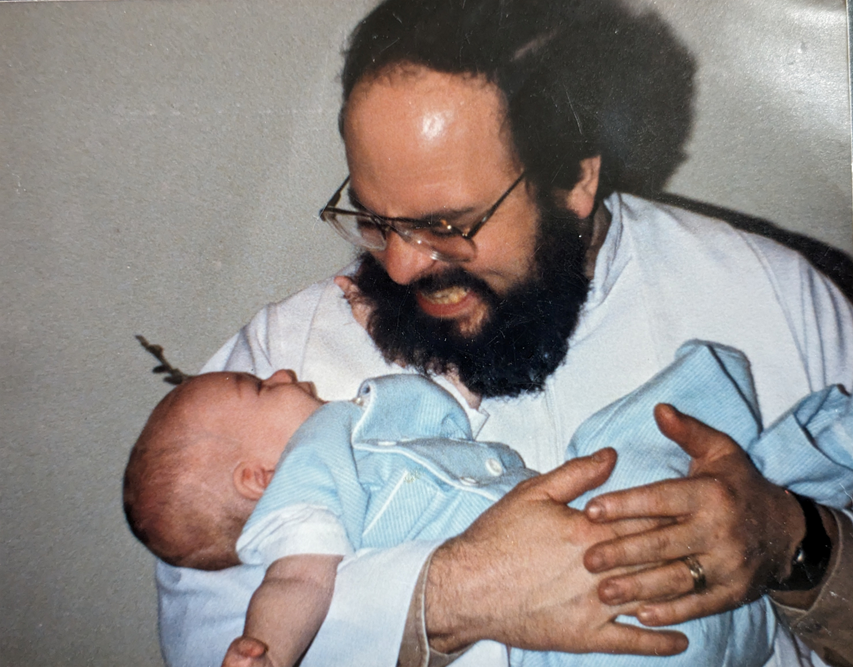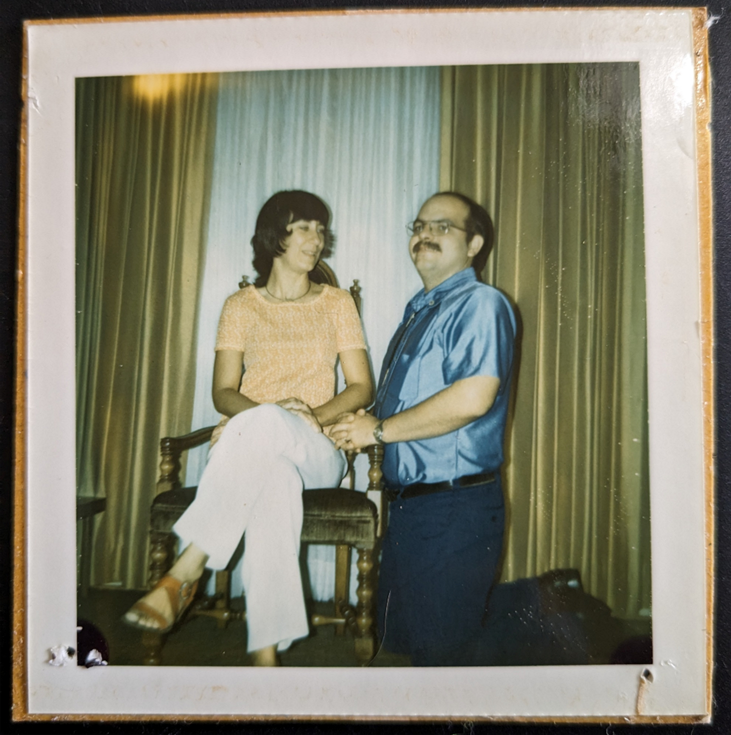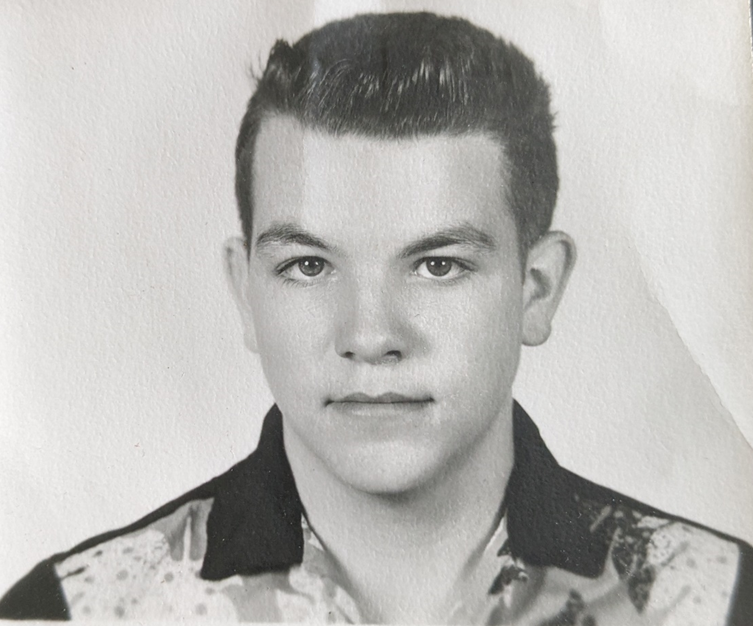 |
| Curtis Harold Stamey |
My dad died today, at 1:30 PM on May 31, 2024. I want to do
something to memorialize him, to leave a piece of him for the future to find.
To yell into the cavern of time so that his name can echo for just a bit
longer.
If I were a musician, I would write him a song so that I
could sing it when I felt alone, so I could lift my voice and light up the
darkness with memories of my father. But I am not a musician. If I were a
painter, I would paint a picture that would capture his heart and soul and make
his bigness and loudness and love obvious to anyone who sees it. I am not an
artist.
I write. I want my words to sing to you. I want to use them to paint you
a picture. So I’m going to try. I want to introduce you to my dad.
[Let’s start with some light violin. A note here. A note there. Nothing too fancy. Something
sweet and light and drifting. A pencil sketching on a canvas.]
I choose to remember Curtis Harold Stamey as a short man with a big presence. He was about 5’6” tall, bald, and he had a magnificent bushy black beard. When I was a small child, he would bounce me on his large belly and playfully scratch my face with that beard of his.
 |
| Author's note: That baby is not me. I was much cuter. |
He met my mom in church, at a Sunday school class for
college students that he taught even though he was a college student too. They
fell in love and were engaged within six weeks. If my kids read this someday, I
want to point out that whirlwind romances usually do not last. This one did.
Quote from my mom: “Sometimes, impulsive decisions work
out.”
[Our violin music starts to find its form. Another string
enters the song, something with some bass. It mirrors and enhances the violin. There
is a structure in this song after all. The pencil marks on the canvas are
starting to look like something, but we don’t know what yet.]
Newly married Curtis wanted to be a professor. He moved to
Tuscan to go to graduate school. They bought land. That was going to be home. Then
a new, charismatic preacher moved into Curtis’s church. My dad found the Holy
Spirit. This was not wonderful news for my mom. She was happy enough to go to
church, but she was not all-in on this Jesus thing.
Quote from my mom: “He found the Holy Spirit and was too
happy. It was annoying.”
The fellowship that my dad was hoping to get to pay for his
doctorate went to someone else. Meanwhile, my dad’s infectious love of Christ
eventually wore my mom down, and she too fell in love with that first century
carpenter who was also the Son of God.
Quote from my mom: “I married a professor-to-be. I didn’t
want to marry a pastor. But he loved Jesus so much, and he felt called. So we
went.”
Years ago, he told me about that decision. He did not want
to go. He had a life set out for him. But God wouldn’t stop calling. God
wouldn’t leave him alone. On the night he decided, he walked his land. Felt the
rocky sand beneath his shoes. Listened to the wind. He mourned the life he was
letting go of while embracing the life that God put in front of him.
[The song is full now. We have our strings and brass and
drums. It’s a strong song, happy and purposeful. The pencil sketch is complete.
It’s my dad, his arms wide in anticipation of a hug. His face is lit by a
smile. The artist starts painting the canvas, bringing depth and light to the
picture.]
Author’s note: I’m going to abandon the idea of a linear
story here. I’m going to present you with disconnected vignettes. My dad would
like that. He loved people and stories, but he didn’t have a place for linear
thought in his head.
-
I remember building models with him. Little cars and tanks
and planes. We would go the model store and pick out our next project, buy
dozens of little square paint bottles that made satisfying clicking noises when
you lined them up on the table, and buy tiny little brushes to paint all the
fiddly details.
I would glue my fingers to the model. I would get glue-y
fingerprints on the canopies of the planes. I would line up my paint brush just
so, and then slop the paint all over the model.
“Do you want some help with that?” I could hear the smile in
the voice. I didn’t look at him.
“No. I can do this,” I said with boyish confidence.
He used to make model ships with intricate rigging. He hated
the rigging. He swore at it, struggled with it, sweated, and turned red trying
to get it to get it just so.
“Why do you do those?” I asked.
“It relaxes me,” he said between gritted teeth. I did not
understand.
-
Dad used to teach Kenpo Karate. I loved the gis. They were
thick canvas and they had patches and big bright belts. My dad was a teddy bear
most of the time but was an actual bear when he was sparing.
Lee, my older brother, was good at fighting. He was tall and lanky and strong and fast. I don’t remember him losing to the other kids. Once, in a tournament, he round-house kicked a kid out of the ring. I thought that was the coolest thing ever.
I was not a good fighter. In that same tournament, I did so
poorly that the other kids were volunteering to fight me. In the next match, I
back-handed the kid in the ear. This was not a legal move and cost me points,
but seemed necessary. So I did it several more times. I lost the match.
 |
| I'm the one on the right who looks like he's going to trip on his own shoes. |
Lee sparred my dad once. He came in with a big round-house
kick, the kid-ejecting kind of kick. My dad’s hands made a sort of blurring
motion, and then Lee went flying backward. That night my mom told me he used to
spar without pads because they didn’t have them back then. He would come back
home black and blue.
My mom: “You do this for fun?”
My dad: “I think so.”
-
My dad is on the pulpit. He is wearing his white robe. His
rainbow stole is catching the Easter morning sunlight. His hands are outspread,
palms open as if he is going to hug the entire congregation. This is my dad at
the peak of his preaching powers. His voice booms like friendly thunder.
He is sharing his love with his people, and he is perfectly
at home.
He holds up a loaf of bread and tears it in half.
“This is my body, broken for you.”
He holds up an old clay chalice.
“This is my blood, shed for the forgiveness of sin.”
I, and the rest of the congregation, are transfixed by this
bearded, be-robed man who loved Jesus so very deeply.
-
We were eating dinner in Bonners Ferry when a man knocked on
the door. My dad opened the door and started talking. The man was homeless and
jobless and looking for a new start. His skin was pale, his face scruffy, and
his eyes drawn and tired. He and my dad left shortly after. Junior high me
sighed. Another dinner ruined by work.
I met the man a few months later while running errands with
my dad. He was healthy and happy and grateful. His eyes were bright. Maybe it
was okay that dinner was interrupted after all.
[The song begins its turn. The major notes shift to minors. Grays
and blacks and bruising purples and blues are added to our painting. There are
storm clouds behind my dad and shadows line his face.]
My grandpa Harold died when my dad was fifteen. My grandma
re-married. Grandpa Ed was a rigid man who believed in hard work and structure.
Grandpa Ed and my dad would fight often, and Grandpa Ed would die without my dad
reconciling with him. This would define my dad’s relationship with authority
his entire life.
-
My dad was given ailing churches that he would turn around before
being sent to another church. This process was good and necessary and painful.
People don’t like change, even people who know change is necessary.
During his last assignment at Bonners Ferry, he bought a mug
that said, “Life’s a bitch and then you die.” As a junior higher, I did not
understand the difficulties of his job or the stresses involved in trying to
save a church that doesn’t want to be saved. But I knew that a pastor who owns
a mug like that is a pastor in crisis.
I did not know what to do about it, so I didn’t do anything.
-
After twenty years of service to the church, my dad was
forced into early retirement. I do not know why. At this point, I don’t believe
I ever will.
-
I was sitting on the steps of a church after a retreat, feeling the warmth of the
evening sun on my face. The light was golden, and the shadows were long. My dad
was inside, talking too much and too long. It was his last retreat before
his retirement.
One of my dad’s friends sat down next you me.
“There are a lot of people in heaven because of your dad.
He’s a great man. I’m going to miss him.”
-
My dad, a man with two master’s degrees, worked minimum wage
jobs to support his family. He stocked dishes at Dansk. He did not get along
with his boss. He tried to stage a mini-coup by arranging the new dish display.
It did not end well.
-
My dad eventually took a teaching job at Daybreak, a
substance abuse center for teens.
My dad: “I don’t think we’re giving these kids enough
credit. I think, with the right education, all these kids can succeed.”
High school me, thinking about some of my classmates, “Some
people are dumb, Dad. I think you should lower your expectations.”
My dad: “We’ll see.”
After a year, I asked my dad how it was going.
“Tom, some people are just dumb. But we love them anyway.”
[The song becomes dissonant. The instruments clash, screech,
and wail. Great splashes of paint are spread over the painting, obscuring my
dad and his smile.]
Dementia is cruel. My dad’s last decade on earth is a story
of slow isolation. He would become angry for no discernable reason. Family
meals would end with yelling before he stormed off. We didn’t know yet that it
was because his mind was breaking.
-
Dad would call. He would be upset but wouldn’t be able to
process why. He would talk in circles. I would listen.
“I know dad. Yeah. I don’t know.”
Silence.
“I love you, Dad.”
Click.
-
I walked into my house after the extended absence caused by
COVID. My dad was in his wheelchair. His beard was gone. He didn’t look up.
Adult me: “Hi, Dad. It’s me. It’s your son. Tom.”
Dad: “Oh. That’s nice.”
-
I sat in a chair next to my dad’s bed.
My mom handed me her Bible. “Do you want to read to him?”
I read him some Psalms. He did not respond. He couldn’t. I
listened to the oxygen pump. Listened to his strained breathing. I read some
more.
[The discord stops. A single violin plays a last, sweet
note. The paintbrush is laid down, my father’s smile and hands just visible
through the mess.]
Dementia does not provide its victim with much dignity at
the end. My dad could not say goodbye. He could not say he loved his four
children. He could not make wrong things right. So we did it for him. His kids
gathered together this week (Lee was there in spirit). We told stories. We
laughed. We sat is silence. We cried. I cried so very much.
My dad was a complicated man. He struggled with authority
and the pain from his forced retirement, and that struggle became all the more
difficult as the dementia set in. But, in another sense, he was a very simple
man. He loved Jesus and he loved people. He did both those things with abandon.
I will miss you dad.
 |







Comments